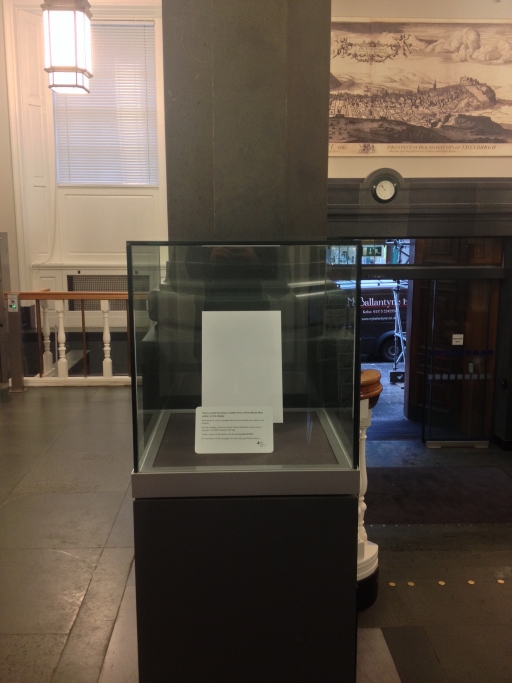UK cultural institutions are displaying blank paper in their exhibitions to protest restrictive copyright protection laws. The campaign, launched by the Chartered Institute of Library and Information Professionals (cilip) partnered with museums, libraries and cultural organisations, is calling on the UK Government to reduce the term of copyright protection in certain unpublished works from the end of the year 2039 to the author’s lifetime plus 70 years, as per provisions laid out in the Enterprise and Regulatory Reform Act (ERRA) 2013.
At the moment the duration of copyright in certain unpublished works is to the end of the year 2039, regardless how old the work is. The ‘Free Our History’ campaign wants the term of copyright protection in unpublished texts to be reduced to the author’s lifetime plus 70 years.
As part of the First World War Centenary many organisations want to make unpublished works such as diaries and letters accessible to the public. Because they are still under copyright protection they cannot do so without permission from the rights holder.
A 2009 study, ‘In from the Cold,’ found that up to 50% of archival records are orphan works; the rights holder cannot be identified and/or traced. The Imperial War Museum reports that they have 1.75 million documents that are orphaned.
Diane Lees, Director General, Imperial War Museums said: ‘During the First World War Centenary commemorations, many organisations want to make original unpublished works such as diaries and letters accessible to the public. Because they are still under copyright protection, they cannot do so without seeking permission from the rights holder.
‘This is even more problematic if the rights holders are untraceable. We are asking everyone who cares about our history, everyone who cares about telling our collective story without restrictions, to join the campaign.’
Museums and libraries around the country are encouraged to display a blank page with the following caption:
We would have liked to show you a letter from a First World War soldier here. But due to current copyright laws we are unable to display the original. Those laws mean that some of the most powerful diaries and letters in our collections cannot be displayed. All that we ask is that copyright law is changed so that the duration of copyright in certain unpublished works lasts for the lifetime of the creator plus 70 years, rather than until the end of the year 2039. This would help us to give voice to more of the men, women and children who lived through some of the most turbulent times in our history. We want to tell their stories. Join the campaign to Free Our History by signing a petition at www.cilip.org.uk/freeourhistory and by tweeting your support using #catch2039.
Visitors are also encouraged to take a photo of the blank page and tweet their support using: Free our history, reform copyright. #catch2039
For more information on the campaign, click here
Images courtesy of the National Library of Scotland and The Chartered Institute of Library and Information Professionals Marketing
Posted by: Hannah Schneider, Centenary News
